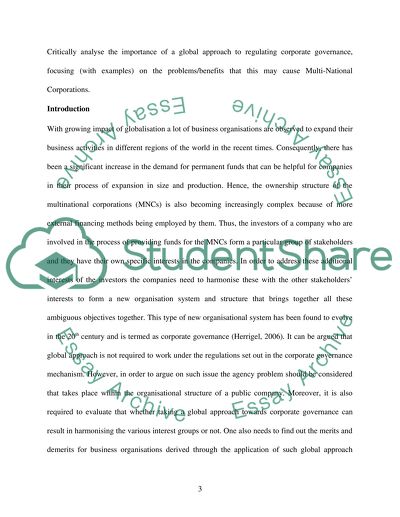Cite this document
(“The Importance of a Global Approach to Regulating Corporate Governance Essay”, n.d.)
The Importance of a Global Approach to Regulating Corporate Governance Essay. Retrieved from https://studentshare.org/finance-accounting/1465161-the-importance-of-a-global-approach-to-regulating-corporate-governance
The Importance of a Global Approach to Regulating Corporate Governance Essay. Retrieved from https://studentshare.org/finance-accounting/1465161-the-importance-of-a-global-approach-to-regulating-corporate-governance
(The Importance of a Global Approach to Regulating Corporate Governance Essay)
The Importance of a Global Approach to Regulating Corporate Governance Essay. https://studentshare.org/finance-accounting/1465161-the-importance-of-a-global-approach-to-regulating-corporate-governance.
The Importance of a Global Approach to Regulating Corporate Governance Essay. https://studentshare.org/finance-accounting/1465161-the-importance-of-a-global-approach-to-regulating-corporate-governance.
“The Importance of a Global Approach to Regulating Corporate Governance Essay”, n.d. https://studentshare.org/finance-accounting/1465161-the-importance-of-a-global-approach-to-regulating-corporate-governance.


